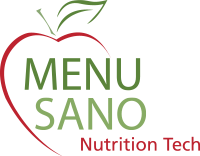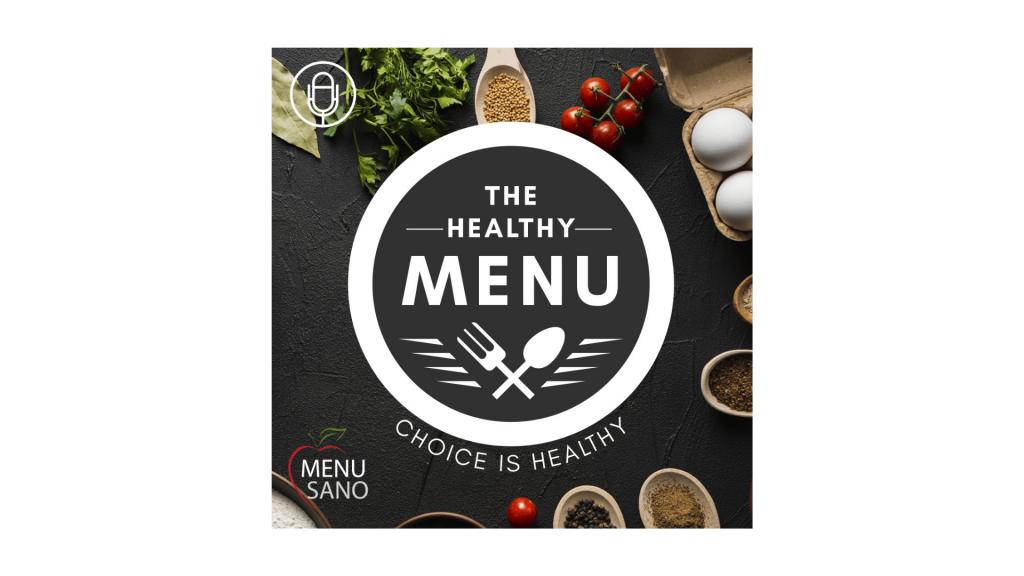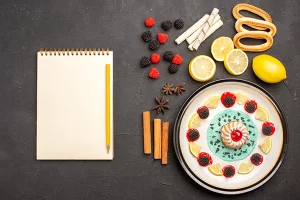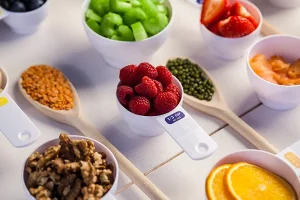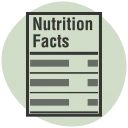Part 1
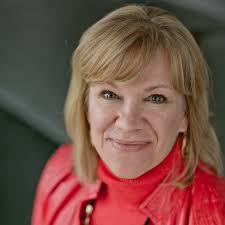 In these special episodes, we were joined by Natalie Lowe, who, in her 30-year professional career has worked in hospitality, hotels and events and continues to be a prominent figure within the event management sector. We spoke to her about the subject of sustainability within the foodservice industry. In the last 14 of these years, Natalie has owned, operated and played a crucial role as President and Secretary Treasurer at Celebrate Niagara, a destination management company based in the Niagara peninsula that specializes in corporate and association events. Most recently, she became the President of The Canadian Society of Professional Event Planners. Passionate about sustainability as well as local solutions to global problems, Natalie is the perfect guest to join us today about the importance of sustainability pertaining to the foodservice sector.
In these special episodes, we were joined by Natalie Lowe, who, in her 30-year professional career has worked in hospitality, hotels and events and continues to be a prominent figure within the event management sector. We spoke to her about the subject of sustainability within the foodservice industry. In the last 14 of these years, Natalie has owned, operated and played a crucial role as President and Secretary Treasurer at Celebrate Niagara, a destination management company based in the Niagara peninsula that specializes in corporate and association events. Most recently, she became the President of The Canadian Society of Professional Event Planners. Passionate about sustainability as well as local solutions to global problems, Natalie is the perfect guest to join us today about the importance of sustainability pertaining to the foodservice sector.
Light Transcript of Interview
K: Why don’t you tell us about yourself?
N: I’m a lifelong Canadian, I actually come from a tiny town in Northern Alberta called Slave Lake, 3 hours northwest of Edmonton. I lived and attended school in Edmonton for about half my life and the other half of my life I went as far south as I could get. I was in Toronto and now I’ve been in Niagara. This fall, it will be 23 years.
K: Wow.
N: I operate a couple of businesses here in Niagara but I actually wanted to be a dietitian but then I found out you had to work in a hospital and the people were ill and the food was restrictive and then I discovered that in hotels and restaurants; the food was quite good! So I transferred to Ryerson (University) and attended the hospitality and tourism program there and started working at Delta Hotels at its corporate office and came up through the ranks on sales here in Niagara. I opened my own business (Celebrate Niagara) about 14 years ago and then about a year and a half ago I opened up the sustainable planner because I was trying to learn how to make our events more sustainable. I wanted to learn how to make things more sustainable and couldn’t find anything that was easy and relatively inexpensive that I could just sit at my desk or my laptop at night and learn what I actually needed to know.
K: Right.
N: I ended up having to consume all of this information and I started to realize what we needed to do is really understand – and you’ve probably seen it yourself, us busy moms we’re working, we’re business people, we don’t have time to waste on actions that won’t actually move the needle. And so my question was, “what can I do that actually, really affects the cause?”. So I created the sustainable events for busy people course. Earlier this week we did the Sustainable Events Forum with my colleague Candice Tulsiram and we’ve gone from there. Now to talk about sort of, where I’ve come personally on my journey, I come from Alberta and everyone in my family is pretty much in the oil industry or the ranching industry, but we’ve made some real adjustments. For my 50th birthday earlier this year I gave up my car.
K: Oh wow.
N: We switched instead of having a meatless Monday, I buy meat from about one meal and some leftovers for the week. And I started looking at everything, how we interact with the world, and once you start to look at actually how we are consuming, it comes home to you and how wasteful we really are.
K: It’s funny you mention that, because there’s this whole thing of minimal living. It’s making sure that you’re not wasteful and you’re not having things that are excessive to your existence, like do we need x amount of food or x amount of clothes to survive? As long we have what we need to get by do we need to get any more than that? It’s funny you mentioned food waste because the conversation around sustainable farming for example, how does that contribute to what you do?
N: When I looked at becoming more sustainable I went to source documents, that meant I wanted original research and for that I used the IPCC (Intergovernmental Panel on Climate Change) Reports but then I looked at who was using that data effectively, and I found an organisation called DrawDown.org who took all the problems that the IPCC identified and they come up with the 100 most effective ways to combat them. And in the top 20, 8 of these are food related. So they’re either production, consumption, or post consumption waste and sometimes, are pre-consumption waste. The number one item that DrawDown.org identified was actually refrigerants. Number 3 on the list is actually food waste.
I took the three R’s and rejigged them for my course to do Refuse, Replace, Reduce, Reuse and Recycle. Why do I need to get ready in the morning, get into my car and go to a drive thru and have a cup of coffee?
K: I think what’s amazing as well is you’re an amazing example of not being afraid of change and I think there are so many other people, kind of, my generation, your generation, generations in between who are so happy and so comfortable with the way things are going that they refuse to change because it’s just too easy not to. You talk about going to a Starbucks or a Tim’s and picking up a coffee or something – if you look at the amount of waste that they generate from an environmental perspective – I mean I’m looking at a Tim’s coffee cup right now, I’m guilty of it myself. If we look at that on a day to day basis, how much food is left over, after a quiet day, for example, how can businesses overcome stuff like that? We’ve got ways for us, the consumers to get over wastefulness but from a business perspective when your sole job is to make sure you’re keeping up with the demand, how can a business prevent the waste?
N: Well what I’ll tell you is that not only am I businessperson but I’m also an entrepreneur. And so, when you’re an entrepreneur, you need to get very comfortable with risk. You never know when the phone’s going to stop ringing, when the market’s going to shift, and those changes and those shifts are coming much quicker than they used to be. As businesspeople, we need to be looking ahead and planning where the future is going. There was a famous ecologist who said, “First and foremost, there’s no money to be made on a dead planet.” But speaking as a businessperson, you’ve got to look and say, “Okay, change is going to happen. The growth is optional.” I can either sit here and be effected by that change or can start to create it and I can ride it. I sometimes use the analogy of surfing. I can stand there, three feet out from shore and get pounded by those waves or I can paddle out and have a great time. And yes there’s risk involved but life is risky! My mom used to have a saying, “nobody gets out of this life alive” and it’s just the way it is.
N: So let’s talk about the fear of change, shall we? In sustainability we run into something called the Attitude Behaviour Gap.
K: Right.
N: So I ask you, Karan, “Do you want to make the world livable 20 years from now and you’re going to say, ‘yes, Natalie I do!'” then I say “Okay Karan, you have to give up your cup from Tim Horton’s”. The thing we have to acknowledge is that everything about climate change is a problem that is going to be difficult for us because it’s behaviour we need to change for a future benefit and potentially a future benefit that we won’t ever see, it’s like flossing your teeth. So we need to be able to really encourage each other and create what we call social norms or normalizing of behaviour and that’s where communicating with your customers and creating that culture really helps.
K: From that and for the benefit of other business owners out there, how important is sustainability to a food service business? What is it that business owners need to consider when it comes to sustainability?
N: Well I think that more and more we are entering an age where businesses need to account for their actions. I think there are a couple of sides to it. One is the psychological stance and where perception is going. I’m out there educating people to ask the restaurants, “Do you compost?” or “Is this locally sourced?” I might be a little bit of sand in their oyster shell but I’m encouraging people to ask their favourite restaurant whether they compost. On a larger scale, we’re seeing issues like the Exxon lawsuit in New York where people are coming back and saying you made a profit off something that hurt the planet. In that case it’s shareholders not end users. But as our waste system gets overwhelmed, will there be ramifications for restaurants who are not composting and putting that food waste into the garbage?
K: I think it’s interesting that – we kind of touched on it a little bit – as an industry, the foodservice industry and even a society, what steps can we take to further push sustainability? You’ve mentioned people bringing their own Tupperware or storage boxes to take food home and contributing that way but what other ways do you think a business can approach sustainability? What practical advice would you give to businesses?
N: I think the first thing we need to do is to educate ourselves so that we understand what the issues are. The general manager of the hotel we hosted at talked about how he has been able to realize cost savings by reducing the weight of the garbage that keeps being sent in. I think you want to look at your food waste and your garbage and see how you can reduce that. You absolutely want to reduce your energy consumption because not only is it a huge cost but also that’s where you’ll have so many savings.
K: Natalie, it’s been so good having you on this episode and I guess the final thing from you is where can people find you?
N: Absolutely, I am on all the social media but primarily LinkedIn is where I talk about all these issues.
Instagram, Twitter, LinkedIn, Facebook
Read more: Bitesize: The Benefits of Labelling
